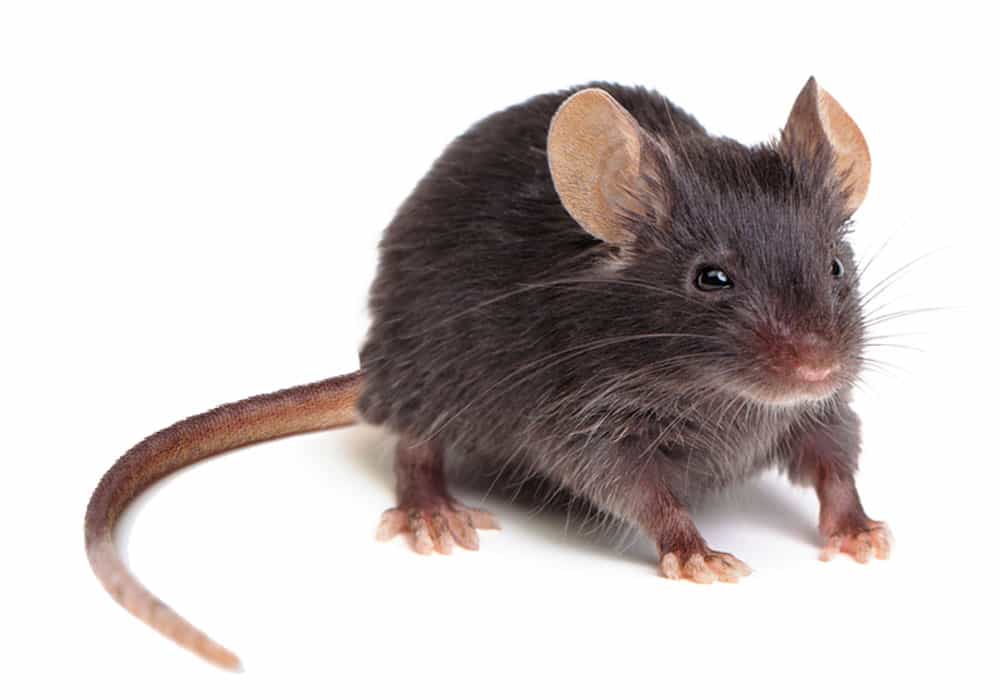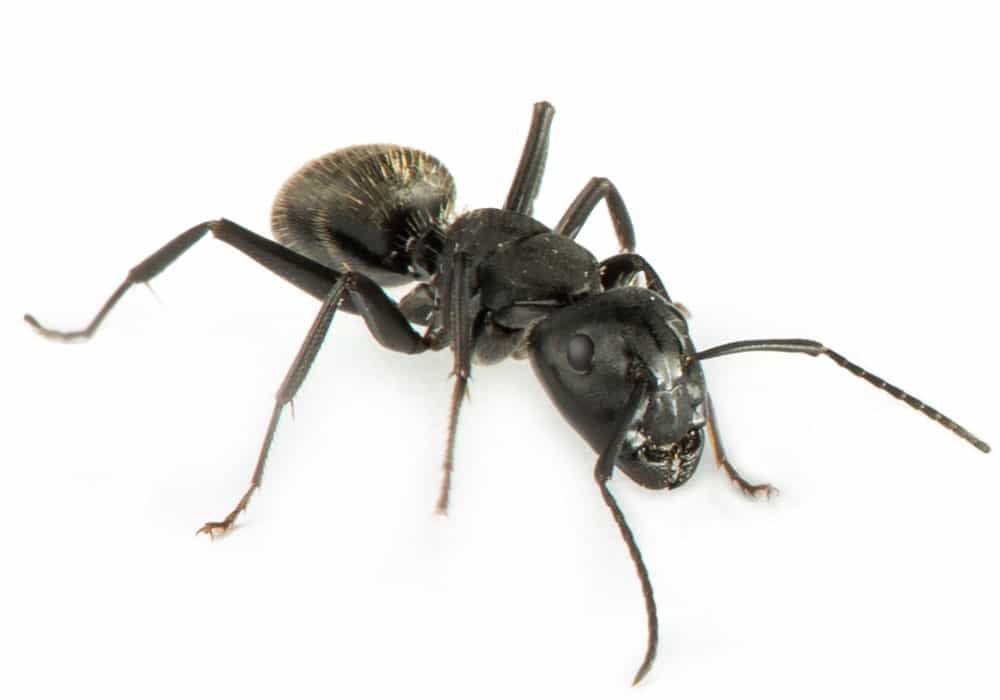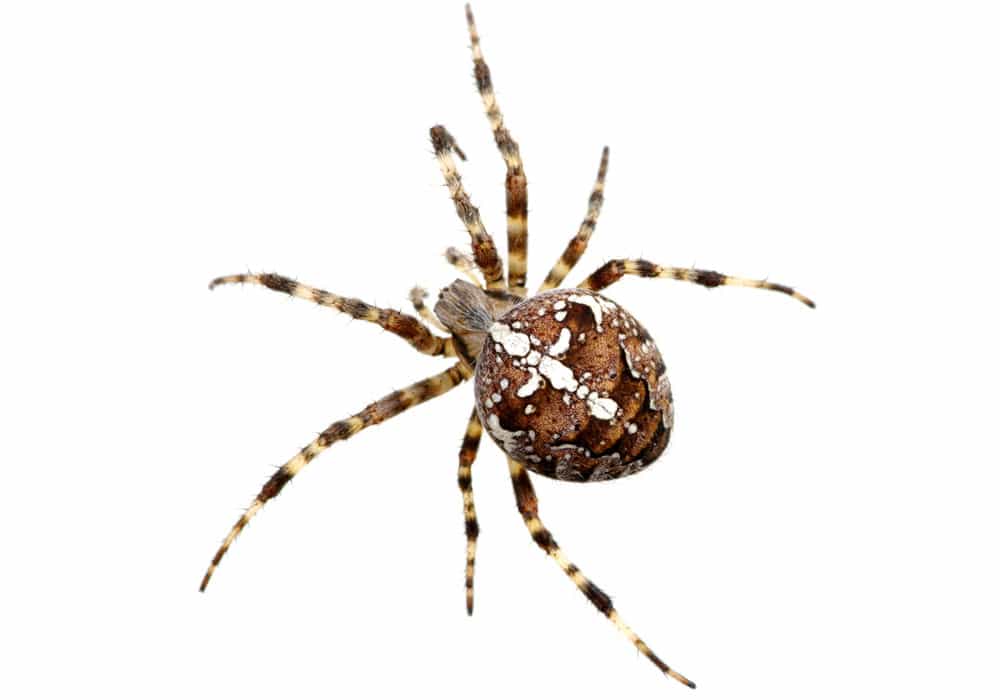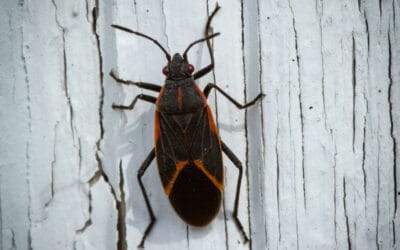BEST Gresham Pest Control
Near You
Gresham Pest Control
Don’t settle for a pest control company that will cut corners. Our team at Aspen Pest Control prides itself on using pet, family, and environmentally safe green pest control products. You are also not just another number to us. We are local and non-franchised, so every customer counts.
We believe that’s why so many Gresham families and businesses have trusted us with protecting their properties from pests. We approach every treatment with incredible knowledge and expertise. Our professional technicians will help you understand how our treatment methods will resolve your pest issues.
Pest control also needs to be thorough. Too often, other pest control companies will perform a quick treatment without taking the necessary time to ensure the job is done right. This outcome usually occurs because they must hit a quota and are paid per treatment. Our team is paid an hourly wage and only has one incentive—your satisfaction.
If you are searching for a highly-rated Gresham pest control or exterminator near you, contact Aspen Pest Control at 971-364-4429 for a Free Consultation.
- Guaranteed Results
- Award-Winning Gresham Exterminators Near You
- Free Pest Control Consultations
- Punctual Gresham Pest Control
- Pet-Safe Pest Control
- Most Common Pests in Gresham, Oregon
- Gresham Pest Control Services Near You
- We Promise Gresham, Oregon
- Same-Day Service
- Serving Gresham, Oregon Neighborhoods
- Our Happy Valley Office
Need to talk to someone right now?
Gresham Green Pest Control
Don’t settle for a pest control company that will cut corners. Our team at Aspen Pest Control prides itself on using pet, family, and environmentally safe green pest control products. You are also not just another number to us. We are local and non-franchised, so every customer counts.
We believe that’s why so many Gresham families and businesses have trusted us with protecting their properties from pests. We approach every treatment with incredible knowledge and expertise. Our professional technicians will help you understand how our treatment methods will resolve your pest issues.
Pest control also needs to be thorough. Too often, other pest control companies will perform a quick treatment without taking the necessary time to ensure the job is done right. This outcome usually occurs because they must hit a quota and are paid per treatment. Our team is paid an hourly wage and only has one incentive—your satisfaction.

Need to talk to someone right now?
Guaranteed Results
We back up all our work with a guarantee. We work hard to eradicate pests from your home and be as thorough as possible. But sometimes, pests come back. If they return between regular services, our pest control technicians will treat your home again free of charge.
In addition, we have excellent reviews from our loyal, happy customers around Gresham, and an A+ rating from the Better Business Bureau.

Guaranteed Results
We back up all our work with a guarantee. We work hard to eradicate pests from your home and be as thorough as possible. But sometimes, pests come back. If they return between regular services, our pest control technicians will treat your home again. We guarantee to do this free of charge.
Award-Winning Gresham Exterminators Near You
Trust is essential when you are picking a pest control company. Technicians will investigate pests throughout your home. You need someone trustworthy and professional. Our professional reputation has been acknowledged by many local organizations and our own Gresham clients. We are particularly proud to be part of the Oregon Pest Control Association.






Free Pest Control Consultations
You may not know immediately the extent of your pest problem. You may have just seen a couple of pests or something in your house that looked damaged. We offer free phone consultations. Know precisely what you are dealing with before paying for a pest control company. We have pest control solutions for nearly every budget. There is no pressure to move forward with us either—we care about getting you all the information before you make a decision.

Free Pest Control Consultations
You may not know immediately the extent of your pest problem. You may have just seen a couple of pests or something in your house that looked damaged. We offer free phone consultations. Know precisely what you are dealing with before paying for a pest control company. We have pest control solutions for nearly every budget. There is no pressure to move forward with us either—we care about getting you all the information before you make a decision.
Punctual Gresham Pest Control
By being punctual to our appointments, we show our clients respect. You have enough demands on your time; you just need the pests gone. Our pest control technicians arrive on time—and if they don’t call you to reschedule if they are unexpectedly delayed, your next service is on us.

Punctual Gresham Pest Control
By being punctual to our appointments, we show our clients respect. You have enough demands on your time; you just need the pests gone. Our pest control technicians arrive on time—and if they don’t call you to reschedule if they are unexpectedly delayed, your next service is on us.
Pet-Safe Pest Control
Pests get under our skin because we want our home to feel safe for our family and pets. The last thing you want is to have a pest control company leave behind harmful chemicals or long-term side effects for your pets. We use 100% pet-safe green pest control treatments. You should know that the ones you love are protected.

Pet-Safe Pest Control
Pests get under our skin because we want our home to feel safe for our family and pets. The last thing you want is to have a pest control company leave behind harmful chemicals or long-term side effects for your pets. We use 100% pet-safe green pest control treatments. You should know that the ones you love are protected.
Most Common Pests in Gresham, Oregon
We feel an obligation to the Gresham community to share what we know to prevent pest infestations. It’s good for your family, neighbors, and the community at large to take preventative measures. Check out these pest pages to learn how to stop them from entering your home.
We specialize in providing exterminator services for all of the following pests: sugar ants, spiders, mice, wasps & yellowjackets, rats, carpenter ants, box elder bugs, stink bugs, mosquitoes, fleas, springtails, and gnats, as well as year-round pest control services.
Here's How Common Pest Control in Gresham Can Help
Carpenter Ants: Carpenter ants are a silent threat to your home, burrowing through wood and weakening its structure over time. Our professional pest control services in Gresham focus on eliminating these destructive pests and preventing future damage to your property.
Box Elder Bugs: Boxelder bugs are notorious for gathering in large clusters, especially near light sources. When they invade your home, they can become a significant nuisance. Let our experienced pest control team in Gresham handle these invaders with effective treatments.
Mosquitoes: Mosquitoes are more than an outdoor annoyance—they carry diseases that can affect both people and pets. Our specialized mosquito control in Gresham reduces their presence so you can safely enjoy your outdoor spaces.
Fleas: Fleas can spread rapidly, creating discomfort for pets and family members alike. Our comprehensive flea treatments in Gresham target infestations at the source, offering relief and long-term pest prevention.
Springtails: Springtails are small pests that thrive in moist areas, often appearing in large numbers around homes. Our pest control experts in Gresham provide effective solutions to manage these nuisances and keep your living areas comfortable.
Gnats: Gnats often linger around food waste and damp areas, creating an annoying problem. Our pest control team in Gresham tackles gnat infestations with tailored solutions, ensuring your home stays clean and pest-free.
Sugar Ants: Sugar ants are persistent pests that love to raid kitchens in search of sweet treats. In Gresham, our pest control experts specialize in finding where these ants are entering, eradicating the colony, and protecting your home from future invasions.
Stink Bugs: Known for their strong smell when disturbed, stink bugs can quickly become unwelcome guests in your home. We offer dependable stink bug control in Gresham to keep these pests at bay and maintain a fresh indoor environment.
Spiders: While most spiders are harmless, some species can pose risks with their bites. Our Gresham pest control services include identifying spider species, removing them from your home, and creating a safe environment for your family.
Mice: Mice are adept at sneaking into homes through even the smallest cracks, often contaminating food and spreading germs. We provide trapping, removal, and exclusion services in Gresham to keep these rodents out for good.
Wasps/Yellow Jackets: These aggressive stinging insects can pose serious dangers if nests are disturbed. Our Gresham pest control specialists safely remove wasp and yellow jacket nests while providing preventative measures to stop them from returning.
Rats: Larger than mice and more destructive, rats can cause significant damage to your home and carry harmful diseases. Our rat control services in Gresham are designed to eliminate infestations and protect your property from further harm.
Gresham Pest Control Services Near You
Residential Pest Control in Gresham
We have served Gresham homeowners for over five years with quality pest control services. Before buying services, learn about the pests, how they affect your home, and how we will treat them.
Stop waiting to be pest-free. Call us today to get a free pest control estimate.
Green Pest Control in Gresham
We have committed to using green pest control products that protect families and pets while eradicating pests. We believe in protecting Gresham’s natural beauty and environment by being green.
Choose to work with a green pest control company to keep your family, pets, and environment clean.
Commercial Pest Control in Gresham
Gresham business owners love working with Aspen Pest Control. We will terminate your pests while staying compliant with local and state-level regulations. Work with an expert pest control team.
Trust your business office and properties with an efficient, professional pest control company.

We Promise Gresham, Oregon
It is no wonder Gresham is Oregon’s fourth largest city, situated near Mount Hood, the Columbia River Gorge, and Multnomah Falls. We know that you care about protecting the environment. We know that you care about your neighbors.
Our promise to Gresham is to give them the best pest control services possible. Our commitment is to use green pest control treatments to keep the environment safe while eliminating pests that could bring diseases or harm to Gresham properties.
For over five years, we’ve worked from neighbor to neighbor—home to home. We’ve loved getting to know Gresham neighborhoods by being recommended by our clients. Our promise is to provide the same high-quality service to every person in the community—valuing every customer’s needs, time, and budget.
We are a local company and won’t treat you like another number. We care about what you think about our professionalism and how effective our work is. Meet one of our pest control technicians today and see what we can do for you.
Fast and Easy Scheduling
Our office staff offer quick and easy scheduling so we can treat your home or business as quickly as possible. Get a free quote and get those pests gone as soon as possible.

Fast and Easy Scheduling
Our office staff offer quick and easy scheduling so we can treat your home or business as quickly as possible. Get a free quote and get those pests gone as soon as possible.
Serving Gresham, Oregon Neighborhoods
We serve the entire Gresham community. We can provide solutions for almost every budget, whether a regular, ongoing service, or a one-time service. Here are a few neighborhoods we are already serving:
Wilkes East
North Gresham
Rockwood
North Central
Northeast
Centennial
Northwest
Central City
Powell Valley
Hollybrook
Historic Southeast
Hogan Cedars
Kelly Creek
Gresham Butte
Southwest
Gresham Pleasant Valley
Contact an Experienced Gresham Pest Control and Exterminator Near You
If you are searching for the best Gresham pest control or exterminator near you, contact Aspen Pest Control at 971-364-4429 for a Free Consultation.
There are many Gresham pest control companies. Our approach and philosophy are unique. We are a local company based in the Portland and Vancouver area. Our service is affordable. Our products are safe for kids, pets, and the environment. And there’s even more to love about working with us.
Aspen Pest Control’s Happy Valley office is located 11 miles southwest of Gresham, where our pest control technicians are always available to help.
Address:
8305 SE Monterey Ave Suite 220 q, Happy Valley, OR 97086, United States
See What Customers Are Saying

These folks are thorugh, polite, patience with questions, on time. You can not find a better organization for controlling/preventing pest problems
Sabastian was personable and very thorough in his treatment of our home. Thank you for the great service.
I was apprehensive at first. In the past I did pest control myself and I don't normally like signing contracts. But I am really glad I went with Aspen. The office isn't pushy in the least, as I found others to be. Secondly, the guys who arrived were wonderful. Professional, knowledgable, took the time to explain everything in detail. As promised, no odor in the least. In addition, the contract is 100% fair business, clearly written with no "small type". I was confident signing. They'll come back every three months for a total of one year service, plus as often as needed without further costs, in any pest issues do arise.

See What Customers Are Saying

These folks are thorugh, polite, patience with questions, on time. You can not find a better organization for controlling/preventing pest problems
Sabastian was personable and very thorough in his treatment of our home. Thank you for the great service.
I was apprehensive at first. In the past I did pest control myself and I don't normally like signing contracts. But I am really glad I went with Aspen. The office isn't pushy in the least, as I found others to be. Secondly, the guys who arrived were wonderful. Professional, knowledgable, took the time to explain everything in detail. As promised, no odor in the least. In addition, the contract is 100% fair business, clearly written with no "small type". I was confident signing. They'll come back every three months for a total of one year service, plus as often as needed without further costs, in any pest issues do arise.
Recent Gresham Blog Posts
We care about sharing our expertise with the Gresham community. There are often easy steps you can take to protect your home or business from pests. Check out our most recent blog posts for these best practices:
Boxelder Bugs Infesting Your Gresham Home? Call Aspen!
Boxelder bug infestation? You need to call Aspen. Boxelder bug infestations can be a real nuisance, and if the bugs make their way into your home, they can be really difficult to deal with. They’re annoying, difficult to treat on your own, and are easier dealt with...
Carpenter Ants In Gresham? DO THIS!
Are you a Gresham home or property owner? Do you have a carpenter ant infestation? You need Aspen Pest Control! Our trained, experienced, and effective technicians will help you address pesky carpenter ants in your home, giving you the peace of mind you deserve.
Exterminating Wasps, Hornets, and Yellow Jackets in Gresham
These pests can pack quite a sting, but they’re all slightly different and need to be treated accordingly. Learn how Aspen Pest Control is helping homeowners in Gresham live happier, safer lives without the threat of wasps, hornets, and yellow jackets. Wasps, hornets,...
Helpful Resources For Information About Pest Control in Gresham
Looking for more information on local regulations, guidelines, or helpful resources? We’ve compiled these to help you get started:
Gresham City Hall
1333 NW Eastman Pkwy,
Gresham, OR 97030
503-661-3000
East County Health Center
600 NE 8th St # 300,
Gresham, OR 97030
503-988-5155
Multnomah County Library – Gresham
385 NW Miller Ave,
Gresham, OR 97030
503-988-5123
Vancouver Office:
12104 NE 95th St.
Vancouver, WA 98682
Portland Office:
8305 SE Monterey Ave
Suite 220 Q
Happy Valley, OR 97086
Mailing Address:
13504 NE 84th St
Suite 103 – 263
Vancouver, WA 98682






